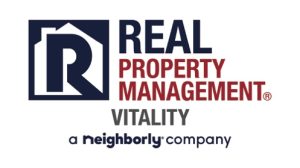Navigating Atlanta’s Real Estate Laws and Regulations
Navigating Atlanta’s Real Estate Laws and Regulations
Understanding Atlanta’s Real Estate Laws and Regulations
Atlanta, the capital city of Georgia, is a thriving real estate market with a diverse range of properties and investment opportunities. However, like any other major city, Atlanta has its own set of laws and regulations that govern the real estate industry. Understanding these laws is crucial for both buyers and sellers to ensure compliance and protect their interests.
One key aspect of Atlanta’s real estate laws is the requirement for all real estate professionals to be licensed. This includes real estate agents, brokers, and property managers. The Georgia Real Estate Commission oversees the licensing process and ensures that professionals meet the necessary qualifications and adhere to ethical standards. Buyers and sellers should always work with licensed professionals to ensure a smooth and legally compliant transaction.
Another important aspect of Atlanta’s real estate laws is the disclosure requirements. Sellers are legally obligated to disclose any known defects or issues with the property to potential buyers. This includes information about past repairs, structural problems, or any other material facts that could affect the value or desirability of the property. Buyers should carefully review these disclosures and conduct their own due diligence to ensure they are fully aware of the property’s condition.
Key Considerations for Navigating Atlanta’s Real Estate Market
Navigating Atlanta’s real estate market requires careful consideration of various factors. One key consideration is the current market conditions and trends. Understanding the supply and demand dynamics, as well as the average sales prices in different neighborhoods, can help buyers and sellers make informed decisions. For example, if the market is experiencing high demand and low inventory, sellers may have more negotiating power, while buyers may need to act quickly to secure a property.
Another important consideration is financing options. Atlanta offers a variety of mortgage programs and loan products to suit different needs. Buyers should explore their options and work with a reputable lender to secure the best terms and rates. Additionally, understanding the closing costs and other expenses associated with buying or selling a property in Atlanta is crucial for budgeting purposes.
Compliance with Atlanta’s Real Estate Laws: A Guide for Buyers and Sellers
Compliance with Atlanta’s real estate laws is essential for both buyers and sellers to protect their interests and ensure a legally sound transaction. For buyers, it is important to work with a licensed real estate agent who can guide them through the process and ensure all necessary legal requirements are met. Buyers should also carefully review all contracts and documents, including the purchase agreement and closing documents, to ensure they are in compliance with Atlanta’s laws.
Sellers, on the other hand, must provide accurate and complete disclosures about the property’s condition and any known issues. Failing to disclose material facts can lead to legal disputes and financial liabilities. Sellers should also be aware of their obligations regarding property taxes, HOA fees, and other financial responsibilities associated with the property.
Expert Tips for Successfully Maneuvering Atlanta’s Real Estate Legal Landscape
Navigating Atlanta’s real estate legal landscape can be complex, but with the right guidance, buyers and sellers can successfully navigate the process. Here are some expert tips to help you maneuver Atlanta’s real estate laws:
1. Work with a knowledgeable real estate attorney: Having a trusted attorney who specializes in real estate law can provide invaluable guidance and ensure compliance with all legal requirements.
2. Conduct thorough due diligence: Buyers should conduct inspections, review property records, and research the neighborhood to ensure they are making an informed decision. Sellers should gather all necessary documents and disclosures to provide to potential buyers.
3. Stay updated on changes in the law: Real estate laws and regulations can change over time. It is important to stay informed about any updates or amendments that may affect your transaction.
4. Seek professional advice: When in doubt, seek advice from professionals such as real estate agents, attorneys, or financial advisors. They can provide guidance tailored to your specific situation and help you navigate any legal challenges.
In conclusion, understanding and navigating Atlanta’s real estate laws and regulations is crucial for buyers and sellers to protect their interests and ensure a successful transaction. By familiarizing themselves with the laws, considering key market factors, complying with legal requirements, and seeking expert advice, individuals can confidently navigate Atlanta’s real estate legal landscape.








